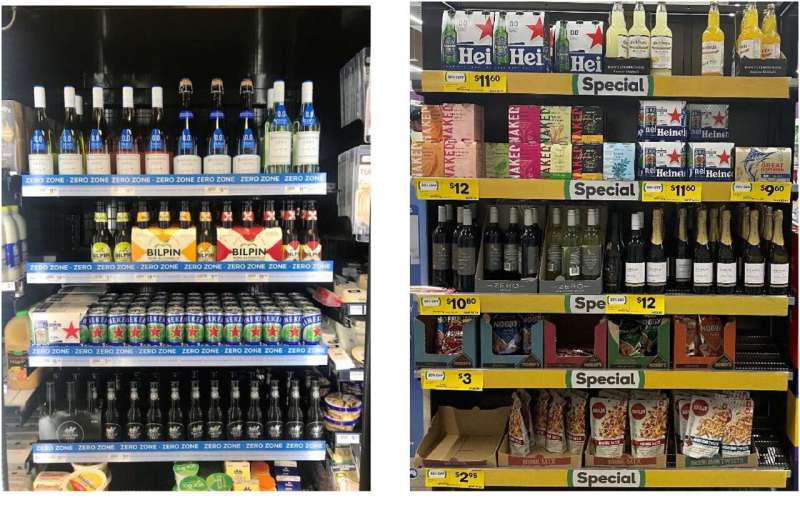This article has been reviewed according to Science X's editorial process and policies. Editors have highlighted the following attributes while ensuring the content's credibility:
fact-checked
peer-reviewed publication
trusted source
proofread
Australian teenagers say alcohol-free products are appealing and could act as a gateway to alcohol use

New research led by The George Institute for Global Health and published today in Appetite, found that more than half (56%) of Australian teenagers aged 15–17 surveyed agreed zero alcohol products looked appealing, and said the packaging was attractive (54%).
More than a third (37%) of Australian teenagers surveyed had tried zero alcohol products. In focus group discussions, some participants identified that zero alcohol products could act as a gateway to future alcohol use by enabling young people to become accustomed to the taste of alcoholic products.
Lead researcher and research fellow at The George Institute for Global Health, Dr. Leon Booth, says this research provides early insights into the potential consequences of the proliferation of zero alcohol products and their marketing in environments where young people are.
"Our research shows that zero alcohol products and marketing are likely making young people more familiar with alcohol brands and further normalizing alcohol consumption. Zero alcohol products potentially act as a trojan horse for the alcohol industry to get in front of young people, exposing them to additional alcohol marketing," says Booth.
Deputy Chair of Cancer Council's Nutrition, Alcohol and Physical Activity Committee, Julia Stafford warns that zero alcohol products, many of which are manufactured by alcohol companies and designed to look and taste identical to their alcoholic counterparts, provide alcohol brand exposure to young people in outlets not traditionally associated with alcohol.
She says, "We already know that the more children and young people are exposed to alcohol marketing, the greater the likelihood that they will start to use alcohol earlier, and to drink at risky levels if they already use alcohol. Drinking alcohol at any level can increase the risk of cancer.
"Alcohol brands claim zero alcohol products are aimed at only adults. However, the study found that young people often nominated their own age group as the one these products would most commonly appeal to.
"There are currently no standards limiting the ways they simulate alcoholic products, or restrictions on marketing or sales, meaning young people can purchase these products and are exposed to marketing in highly visible places such as supermarkets. This environment creates a public health risk to young Australians."
The study also found most teenagers surveyed (80%) recalled seeing zero alcohol products for sale, with more than half citing supermarkets (58%). The majority (76%) recalled seeing advertising for zero alcohol products, and of the teenagers surveyed, 44% saw advertising on television, 38% on social media, 30% online, and 29% in supermarkets.
Dr. Booth says, "Zero alcohol ads are reaching young people through several avenues, including popular social media platforms like Instagram and TikTok. Young people thought these ads were funny, which was clearly memorable as they often recalled the alcoholic brands that promote their zero alcohol offerings in this way.
"It's clear that we need to do more to protect children and young people from exposure to zero alcohol marketing to prevent future alcohol harms."
Stafford says, "Cancer Council is calling on the Federal Government to better regulate how alcohol branded products are marketed to protect the health of young Australians, and to pay close attention to how zero alcohol products provide additional marketing opportunities for alcohol companies.
"The voices of young people should be heard by policymakers to ensure their health is prioritized over industry profit."
The study comprised two parts: focus group discussions with 44 Australian teenagers aged 15–17 and a national survey of 679 Australian teenagers aged 15–17 that examined their perceptions of and experiences with zero alcohol products. It found that zero alcohol products are likely to be exposing young people to additional alcohol marketing, which can put them at risk of alcohol harms in future.
More information: Leon Booth et al, Zero alcohol products and adolescents: A tool for harm reduction or a trojan horse? Appetite (2024). DOI: 10.1016/j.appet.2024.107582





















